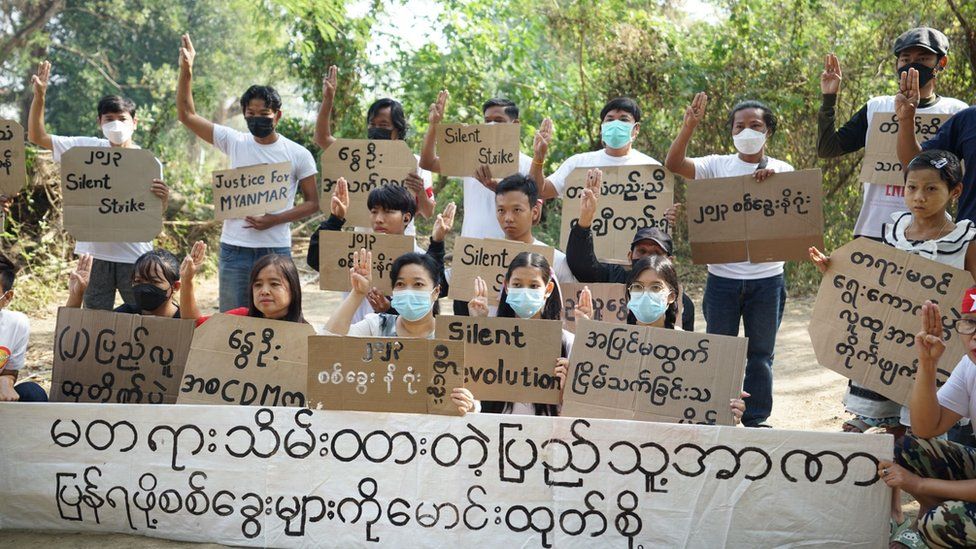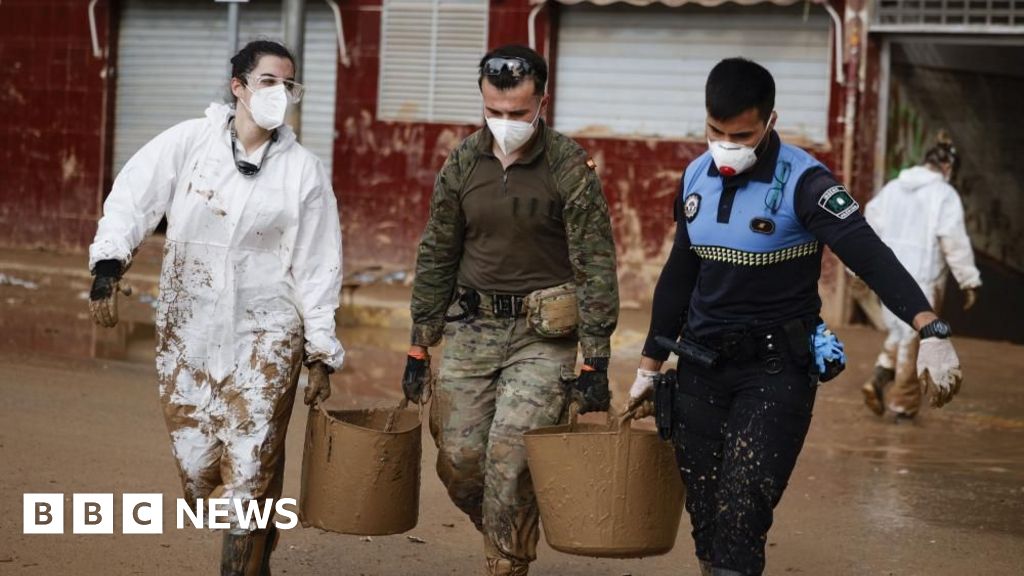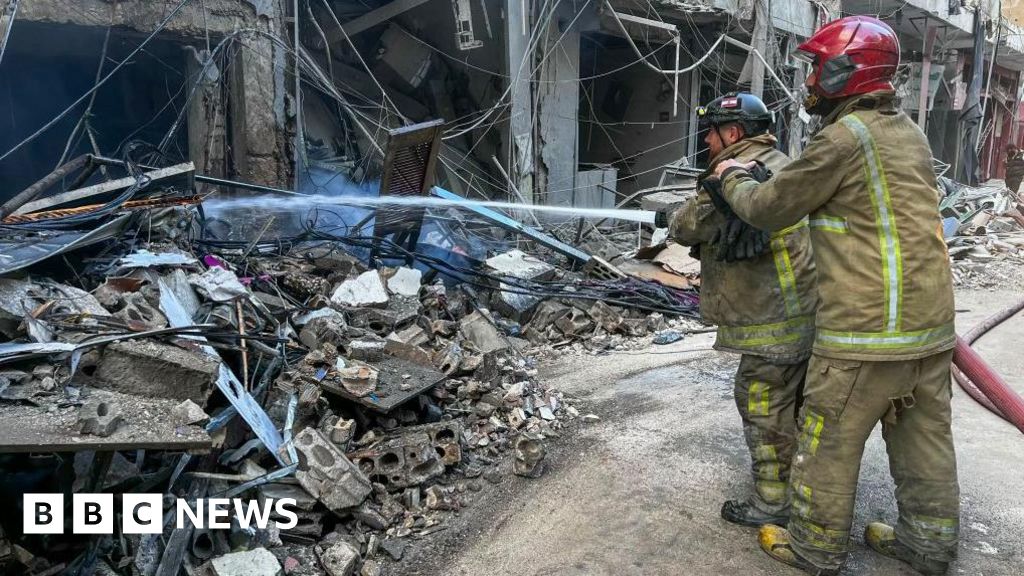ARTICLE AD BOX

The "silent strike" has also been observed in Mae Sot, just over the border in Thailand
By Jonathan Head at the Thailand-Myanmar border & Oliver Slow in London
BBC News
Pro-democracy activists in Myanmar are holding a "silent strike" to mark two years since a military coup.
Protesters have urged the public to remain indoors and for businesses to close for Wednesday's anniversary.
The call came as the UK, US, Canada and Australia announced fresh sanctions against army-linked firms.
The military has said the country is facing "unusual circumstances" - prompting fresh doubt over its pledge to hold an election this year.
Tayzar San, a prominent activist, said in a Facebook post that the strike was being conducted to provide proof that the "public does not accept... the rigged election" that the military was planning.
Images showed deserted streets in major cities, including the commercial centre of Yangon.
Two years after a coup which catastrophically misread the public mood in Myanmar, the statistics tell their own, dismal story.
More than 2,900 people have been killed during the junta's crackdown on dissent, according to monitoring group the Assistance Association for Political Prisoners.
One-and-a-half million people have been displaced, 40,000 homes have been burned down, eight million children are no longer in school, and 15 million people are judged by the UN to be dangerously short of food.
Much of the country is caught up in a brutal civil war. Yet the military is still refusing to negotiate with its opponents, as it promised to do in a meeting with neighbouring countries shortly after the coup.
Instead, it has plans for an election which would almost certainly exclude Aung San Suu Kyi, who resoundingly won the last election, and much of her party, the National League for Democracy.
Those loyal to her are calling on citizens to boycott any poll organised by the military, arguing it would be illegitimate and impractical. The UN says these would be "sham elections".
The military's acknowledgement this week that it had failed to normalise the situation may force it to postpone the election - originally scheduled for August this year - and extend the state of emergency, prolonging the grim stalemate in which Myanmar is trapped.
Image source, Getty Images
Image caption,Streets have fallen quiet in Yangon, the country's largest city
Western nations used Wednesday's anniversary to coordinate new rounds of sanctions against the military and its supporters.
The UK targeted, among others, companies supplying aviation fuel to the military, which it said were "enabling its barbaric air-raiding campaign in an attempt to maintain power".
British Foreign Secretary James Cleverly said the sanctions were aimed at "reducing the military's access to finance, fuel, arms and equipment".
He added: "The junta must be held to account for their brutal crackdown on opposition voices, terrorising air raids and brazen human rights violations."
Australia announced its first sanctions against the military, aimed at 16 individuals "responsible for egregious human rights abuses", as well as two major military-controlled conglomerates, which dominate the country's economy.
Sanctions by the US targeted the military-approved election commission, which "the regime has deployed to advance its plans for deeply flawed elections".
The military is expected to issue a statement on Wednesday that could extend a state of emergency.
Image source, Reuters
Image caption,Anti-military protests have also taken place in neighbouring Thailand to mark the anniversary

 1 year ago
20
1 year ago
20








 English (US)
English (US)